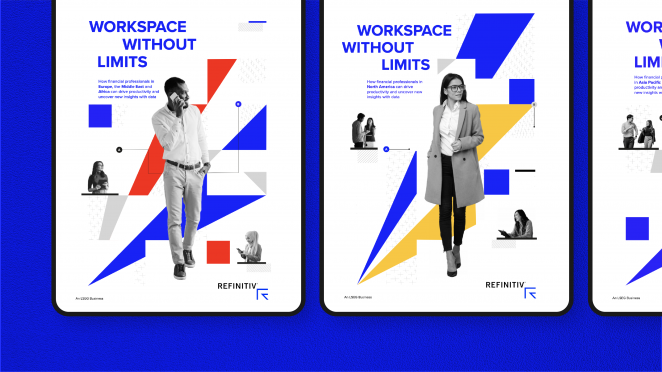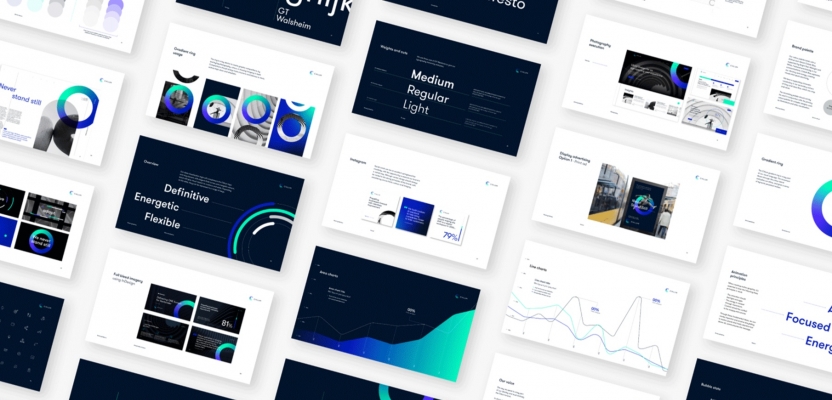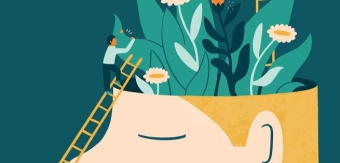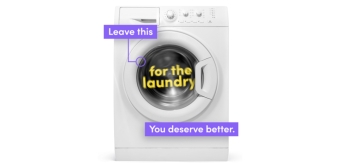For this week’s Getting to Know, we’re talking to Benedict Buckland, the Creative Director at alan. the B2B marketing agency that's a part of Raconteur.
Benedict’s career path is far from a conventional, having started at the tail end of the 2008 financial crash at BP before manifesting his own path towards a more creative role.
We spoke to the man himself about everything from understanding the human condition to the intersection of strategy and creative.
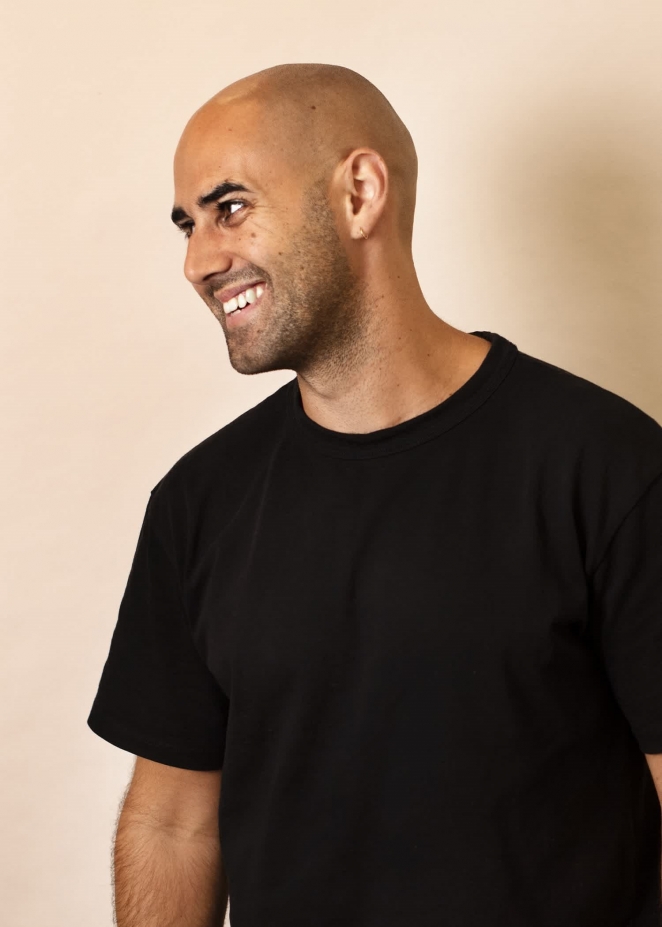
Tell us a bit about your role! Is there a “typical” day?
As CCO I get to be across the full spectrum of the agency: digital, design, copy… I even pop up in new business meetings and am presently moonlighting as a Research Director!
Being nosey and living vicariously aside, my focus is all about creating the best possible environment for us to do the best possible creative work we can.
This could be setting up a dream team of creative talent, fending off client services, helping unlock creative impasses and (very occasionally) getting some of my own ideas and copy lines away.
I am also fortunate enough to be allowed to meddle in strategy. My background just about gives me the licence with the team but either way it’s something that I would insist on. Great work comes from the necessarily lively dynamic between strategy and creative.
What was the biggest challenge in getting to your current position?
The biggest challenge has been just how far away from ‘chief creative officer’ I started my career! Graduating immediately after the 2008 financial crash (is that an excuse?!), I succumbed to the pressure of “get a decent job, pronto”.
So, I signed up to BP’s three-year grad scheme. There was also a swiftly aborted foray into becoming a lawyer but the less said about that the better.
My first role at the oil major was as a business analyst in their UK fuels division in Milton Keynes. As you can imagine, crunching the price of jet oil is not how you hone your craft as a creative, this was also apparent to me.
Since that point, I have relentlessly re-steered my career towards what I abstractly identified at the time as ‘creative director in an agency’. What I precisely had in mind back then is anyone’s guess, but it worked.
I engineered my final two roles to be National Account Manager and Brand Manager before coaxing Raconteur to take me on as a content strategist in their growing marketing agency back in 2014.
This was the lucky break that I needed, allowing me to springboard into a Head of Strategy role, followed by a gig running the full creative and editorial operation before finally getting that coveted Creative Director title.
What is your personal background and what role did it play in your career?
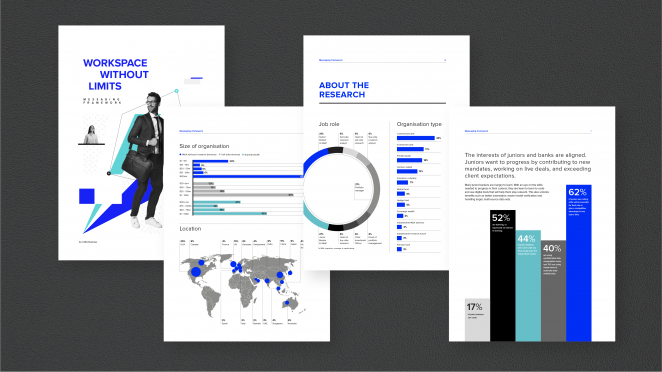
The two biggest influences on my career and the way I do what I do are drama and anthropology. I was a border-line annoying thespian and did my undergraduate in Anthropology at Durham.
To have a crack at the academic argument for why I chose these two, they’re both about understanding the human condition. In Anthropology, quite purely so as you are analysing the social, environmental, and biological factors behind human behaviour. Whilst less explicit, the same can be said about theatre.
Plays are of course studies of human behaviour but for me, the process of interpreting and then expressing a character as an actor gives perhaps the most intimate understanding of the human condition.
So, why is this relevant? Fundamentally, creative (and marketing more generally) is about engaging and influencing people. The ability to be able to intellectualise and interrogate that process, in addition to using intuition, makes the job that much easier.
What is your biggest career-related win? What is your biggest loss?
It’s not the most glamorous win but the one that gives me most satisfaction is landing our first full rebrand project. This was a sizeable step change for us as an agency. At the time we were a big name for content, design and strategy but didn’t have a brand…for brand.
Getting into that space was a major priority for me as I have always seen branding as the ultimate intersection of strategy and creative, a mix I’m particularly passionate about. Making the case for our strategic ability combining with our creative talents was central to winning our maiden brand brief.
The first gig was for a brand that’s about as deep and dark as you get in B2B: a technology distribution company! However, since then it’s been a [gradual] shift to slightly more fashionable brands.
Biggest loss? They all hurt, deeply. However the one that stands out to me is when my creative idea was rejected for lacking emotion - “i get it but it just doesn’t grab me emotionally”. That really hurt.
Ever since then I am relentless with applying the gut-check to everything I do. If it doesn’t provoke a visceral response, rip it up, start again.
Which individuals and/or agencies do you gain inspiration from? Do you have any heroes in the industry?
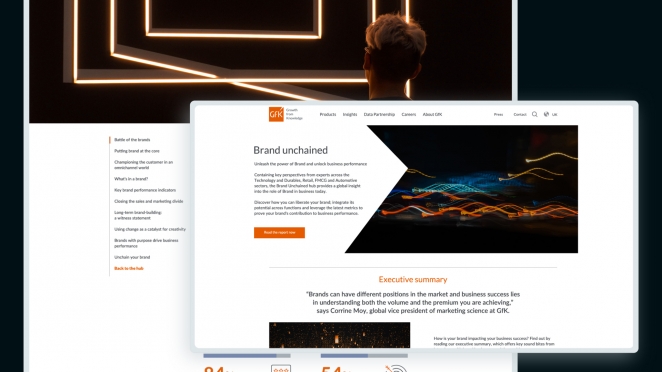
I’m not really the ‘fanboy’ type to be honest. When it comes to inspiration, I think it’s most important to get it from as wide a variety of sources as possible. In fact, the more unusual, the more disconnected from ‘the industry’ the better.
For sure, I read Contagious, and I glance at the Campaign newsletter but just keeping your eyes open is the most… eye-opening. This can be picking up on intriguing concepts in the world of art, theatre, media. However, it can also be simply observing cool ways of telling stories in the (physical and digital) world around you.
If you could go back to your teenage years, would you have done things differently? Do you have any regrets?
Not quite a teenager but the question that comes to mind for me is if I rewound the clock, would I still do the BP grad scheme? The honest answer is, I’m not sure.
Yes, I could have taken a more linear, fast-tracked route to where I am now. I’d certainly be far more rounded as a craftsperson.
However, whilst I look back with a tinge of regret for having worked for that type of company, would I have the breadth of analytical, commercial, and strategic skills I do? No.
Would I have that point of difference as a creative that actually ‘gets’ business? Probably not.
If you weren’t in your current industry, what would you be doing?
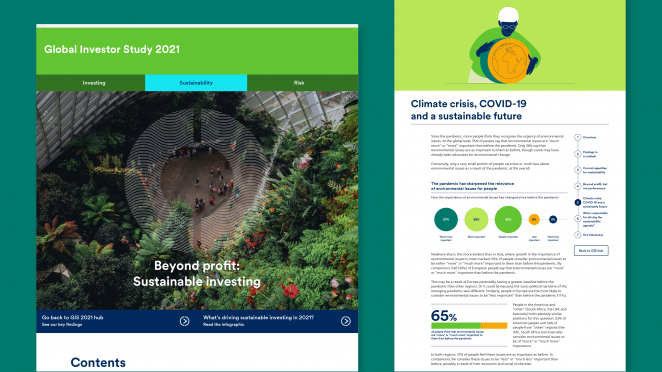
I like to think I’d be a presenter on a show about politics or current affairs. I still absolutely love performing and am a bit of a geek when it comes to those sorts of topics. I still harbour ambitions to make this a reality so watch this space. Although it will probably need to be a front mic rather than a camera!
What’s your one big dream for the future of the industry?
The power of emotion and big, bold creative becomes ubiquitous in B2B.
There is a growing weight of (academic) evidence that the traditional distinction between the B2C and B2B purchase decision is obsolete. Despite this, the vast majority of marketing in B2B is boring, conservative and treats their audience like robots.
I am sick and tired of this emotional illiteracy, and I am on a mission to make B2B marketing a visceral experience.
What are your top tips for aspiring creative professionals?
- Get out of your silo, become a multi-disciplinary creative. This doesn’t mean you need to be an expert practitioner in copy, design and coding but you need to understand the whole ‘system’ enough to have an opinion on every part of the creative process.
- I’d also advocate sticking your nose in on what your colleagues in strategy, client services and BD do. Just be unapologetically curious.
- Remember you’re not an artist. This sounds cruel and will inevitably annoy a few people, but it’s true. We’re creating solutions to achieve very specific aims, within tight parameters, for a client…it’s not a medium of individual expression.
- Go beyond your craft, don’t be precious, see the big picture and, above all else, focus on the problem to solve. Those that see themselves as creative problem solvers are the ones that come up with concepts and big ideas that match the use case and truly make a difference.
- Be provocative. Challenge, ask why, ask what if. Now of course this does need a bit of diplomacy and guile but the more you can take this approach with the agency and briefs, the better results you’ll get both professionally and creatively.
What are your top tips for other creative leaders?
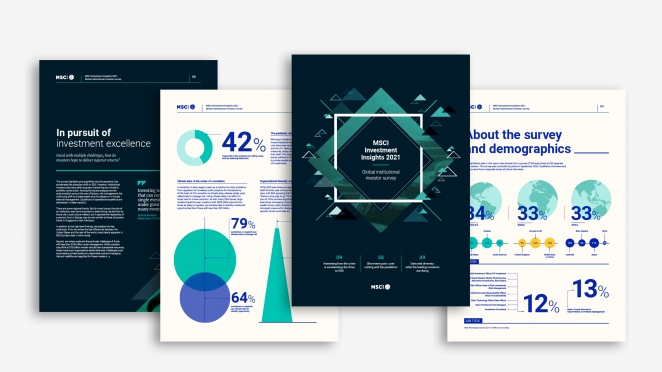
If you haven’t already, create a culture where strategy and creative are mutually capable peers. The best work happens at the intersection of strategy and creativity but it must be a lively, (constructively) combative intersection.
Push your creatives to develop their strategic thinking and get your strategists to build their confidence to have a creative opinion.
When you think about your team, what is the thing that matters to you the most?
A willingness to challenge. Great work comes from provocative, contrarian thinking.
Do you have any websites, books or resources you would recommend?
B2B marketing. Solved. podcast (I am co-host) - https://open.spotify.com/show/12zkGSTnBUrran2BiIcWmB
https://podcasts.bcast.fm/b2b-marketing-solved
